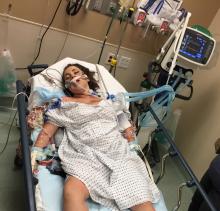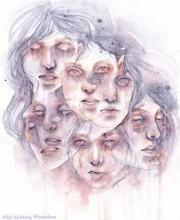
Latest Articles
|
Six months ago, Hanna Lottritz planned on having a fun day out with friends at a music festival. She blacked out before midnight, and woke up in the hospital—to find that she had been in an alcohol-induced coma for two days. Lottritz, who turned 21 earlier this month, wrote a poignant blog sharing her story. Buzzed from having a couple of beers at the Night In The Country music festival, she decided to try to outdrink a group of friends who were drinking hard liquor. Lottritz does not remember the rest of the night, but friends tell her she chugged an entire solo cup of whiskey. She assured the group that she felt fine, but collapsed shortly afterward. |
|
Sometimes my brain can barely function properly. Sometimes it takes every ounce of strength to get out of bed and move to the couch. Sometimes taking a shower takes a Herculean effort. I can’t sleep. I can’t eat. Even when things aren’t that bad, I feel terrible because I feel terrible. It shouldn’t be so much work going about the business of everyday life. Why? Because I have a number of mental health conditions, including depression and anxiety. I’ve had many different types of therapy. I go to group therapy once a week. I learn “skills” as ways of coping with my emotions, interacting with others and improving my quality of life. |
|
Addiction is a condition that results when a person ingests a substance (e.g., alcohol,cociaine, nicotine) or engages in an activity (e.g., gambling, sex, shopping) that can be pleasurable but the continued use/act of which becomes compulsive and interferes with ordinary life responsibilities, such as work, relationships, or health. Users may not be aware that their behavior is out of control and causing problems for themselves and others. |
|
We all get lost in a good book or movie. But someone with dissociative disorder escapes reality in ways that are involuntary and unhealthy. The symptoms of dissociative disorders — ranging from amnesia to alternate identities — usually develop as a reaction to trauma and help keep difficult memories at bay. Treatment for dissociative disorders may include psychotherapy, hypnosis and medication. Although treating dissociative disorders can be difficult, many people with dissociative disorders are able to learn new ways of coping and lead healthy, productive lives. Symptoms |



